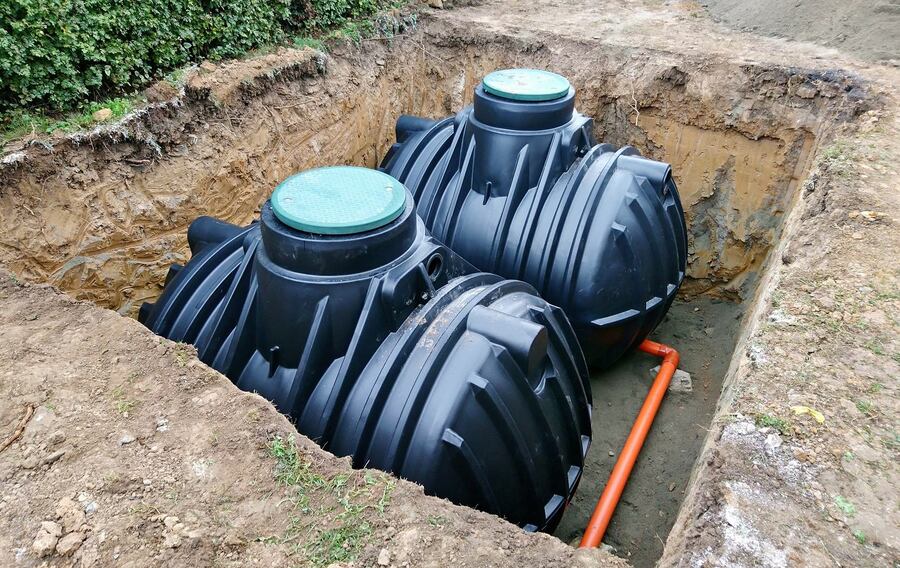
09
For homeowners seeking an efficient and eco-friendly alternative for wastewater management, septic tanks have long been a popular choice. However, concerns about safety and maintenance often arise. We'll explore the safety aspects of septic tanks for homes, discussing key considerations, the importance of regular maintenance such as septic tank pumping, and the role of professional septic companies in ensuring a secure and reliable system.
Septic tanks are known for their minimal environmental impact compared to centralized sewer systems. These systems allow for the natural filtration of wastewater, returning clean water to the environment. Properly functioning septic tanks contribute to groundwater recharge, promoting sustainability. However, it is crucial to recognize that this eco-friendly approach requires responsible use and regular maintenance to ensure safety.
When designed and installed correctly, septic tanks are considered safe for homes. Professional septic tank installation, carried out by experienced septic companies, ensures compliance with local regulations and guidelines. The system's location, size, and design are carefully considered to prevent potential hazards and ensure the safety of residents and the surrounding environment.
The safety of septic tanks largely depends on regular maintenance practices. Over time, solids and sludge accumulate in the tank, potentially leading to clogs and malfunctions. Routine septic tank pumping is essential to remove these accumulations and maintain optimal system functionality. Homeowners should schedule regular inspections with Charlotte Septic Pros to address any emerging issues promptly.
Homeowners must be cautious about the products they introduce into their septic systems. Certain chemicals, antibacterial soaps, and excessive use of harsh cleaners can disrupt the natural balance of bacteria in the tank, hindering its ability to break down waste. Using septic-safe products and adhering to guidelines provided by septic companies can help maintain a safe and effective septic system.
Being aware of warning signs that may indicate septic tank issues is crucial for maintaining safety. Foul odors, slow drainage, or pooling water around the tank are indicators that there may be a problem. Ignoring these signs can lead to more significant issues, compromising the safety and functionality of the septic system. Immediate action, such as septic tank repair or cleaning, should be taken when these warning signs arise.
Properly maintained septic systems pose minimal health risks. However, neglecting maintenance can lead to the release of harmful bacteria and contaminants into the environment. Regular septic tank cleaning and pumping prevent the accumulation of harmful substances, ensuring that the system operates safely and effectively.
Septic tanks can be a safe and environmentally friendly option for wastewater management in homes when properly designed, installed, and maintained. Regular septic tank pumping, inspections, and timely repairs by Charlotte Septic Pros are essential for ensuring the safety and longevity of these systems. Homeowners play a crucial role in maintaining a safe septic system by adopting responsible practices, avoiding harmful additives, and addressing warning signs promptly. With proactive care, septic tanks can provide a reliable and sustainable solution for managing household wastewater while minimizing environmental impact.

22
Can Bacteria Additives Eliminate the Need for Pumping? If you own a home with a septic system, you’ve probably seen…
Read more
12
A single slow drain in your home can feel like a minor inconvenience. Maybe the sink takes a little longer…
Read more
05
Are Slow Drains a Septic Issue or Just a Clog? Slow drains are one of those household problems that start…
Read more
02
What Septic Service Techs See That Homeowners Miss Most homeowners only think about their septic system when something goes wrong.…
Read more
21
Simple Habits That Protect Your Septic System A well-functioning septic system does its job quietly, but the moment something goes…
Read more
14
Pump Now or Pay Later: The Real Cost of Skipping Maintenance A properly functioning septic system is easy to forget…
Read more
11
Why Your Septic System Always Acts Up at the Worst Time Homeowners often feel that septic problems strike at the…
Read more
04
Early Warning Signs Your Septic Tank Needs Pumping For homeowners who rely on a septic system, routine maintenance is not…
Read more
29
Why Does My Septic System Smell Fine One Day and Terrible the Next? If you own a home with a…
Read more
19
Is Your Septic System Overdue? Simple Home Checks You Can Do Today For many homeowners, the septic system is a…
Read more